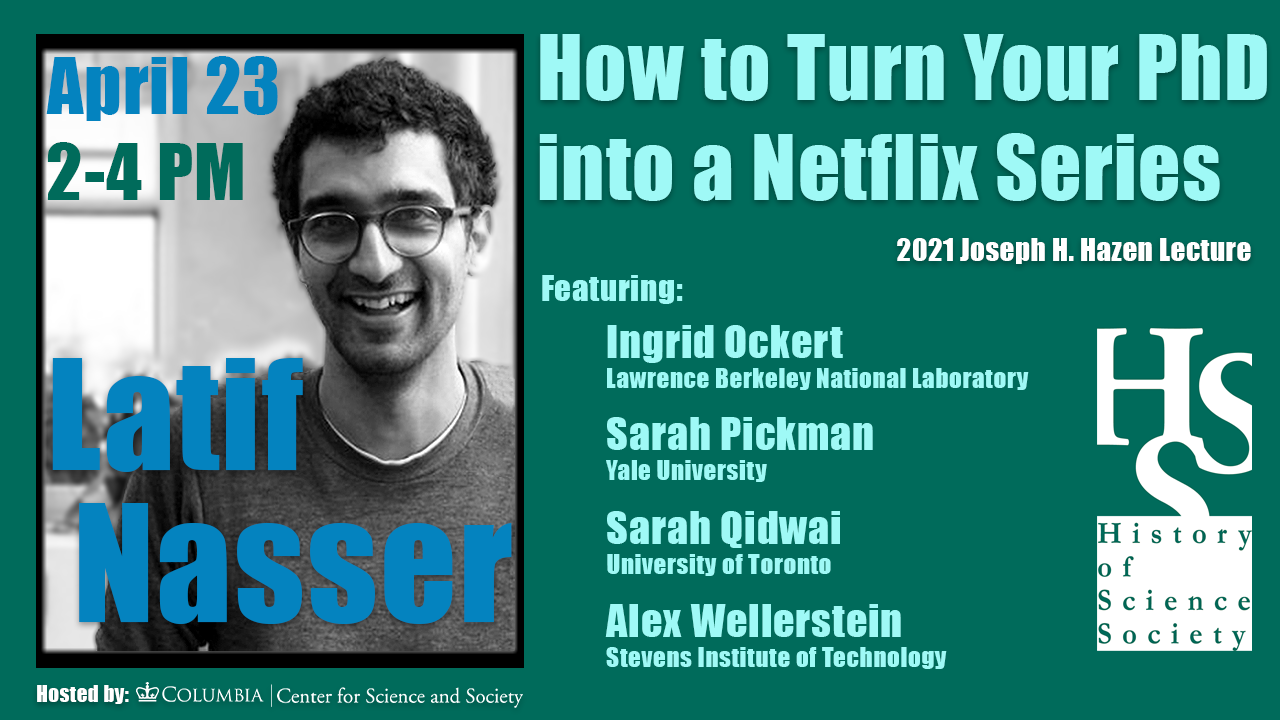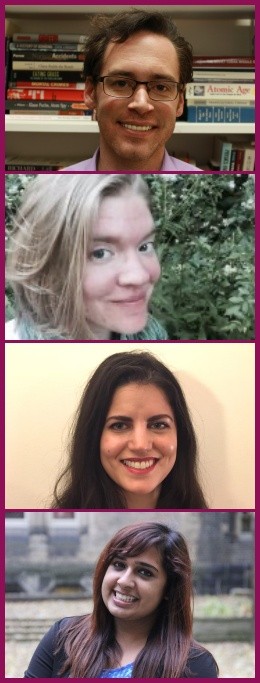How to Turn Your PhD into a Netflix Series

Latif Nasser first became interested in journalism as a child. “When I was a kid,” he writes, “my dad would wake me up every morning by bursting into my room at the crack of dawn with a copy of the Toronto Star, which he had already read cover to cover and start excitedly telling me all the stories he read.” With this early introduction into the world of storytelling in journalism, he found himself attracted to the field after earning his doctoral degree in the history of science at Harvard University. Nasser is currently director of research at WNYC for podcast Radiolab and executive producer and host of the Netflix docuseries Connected. Despite the professional left turn, he continues to use his academic background in his current work. “I try to approach stories with both the big picture and archival eye a historian would as well as the more immediate person-on-the-street type approach [of] a journalist,” says Nasser. In both his radio and TV series, the combination of these two perspectives works to introduce high-level scientific concepts to the public in ways that are informative, engaging, and approachable.
In each of his TED talks (2015 and 2016, respectively), Nasser takes his audience on a journey as he tells the stories of the history of pain medicine and the evolution of camels. Although these are seemingly disconnected topics, Nasser is an expert at captivating his listeners and readers, going so far as to bring a live camel onto the TED stage. While he does his best to communicate important concepts in an entertaining way, Nasser is also hoping that the stories he shares help people to keep an open mind and to see that our understanding of science is constantly evolving as new information is discovered. “The story of our world is a dynamic one,” he says. “It requires our willingness to readjust, to reimagine.”

While we can’t promise live camels, Nasser will share his journey on April 23rd for the 2021 Joseph H. Hazen Lecture “How to Turn Your PhD into a Netflix Series.” He’ll discuss his shift from history of science to journalism and share tips for telling science stories to audiences outside academia. He will be joined in conversation with moderator Professor Alex Wellerstein, Stevens Institute of Technology; special guest Ingrid Ockert, Lawrence Berkeley National Laboratory; and PhD student commentators Sarah Pickman, Yale University, and Sarah Qidwai, University of Toronto.
When asked about what the audience should take away from this event, Nasser says, “I hope [listeners are] inspired to share the exciting things they are learning and thinking about with a broader audience. Also with a sense that it is actually possible (although admittedly very difficult) to make things that have wide appeal but are also rigorous, things that are accessible but also complex, things that are fun without being dumb. He notes, “It takes a kind of courage to share something you are passionate about with the wide world, but that there’s also a kind of special joy that comes from it.” While Nasser’s message is directed to anyone willing to share their knowledge, he specifically recommends students and scholars interested in communicating their technical research to seek out mentors and try to emulate their best practices. “Read/watch/listen to the people you think are the best at doing that kind of crossover work,” he advises. “Dissect their work as if it’s high literature.”
This event is free and open to the public but registration is required via Eventbrite. It is organized by the History of Science Society, hosted by the Center for Science and Society, and co-sponsored by
